Why Wisdom Teeth Are So Much Trouble

Wisdom teeth won’t make you smarter. They’re called that because they usually come in when you’re older, around 17 to 21. These teeth are in the very back of your mouth. You get two on top and two on the bottom as part of a complete set of 32 adult teeth.
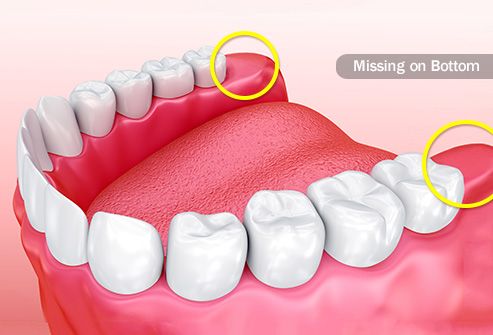
Wisdom teeth are molars, your toughest, widest teeth that grind food. But some people don’t have all their wisdom teeth. They’re the ones most commonly missing from adult mouths. Some scientists think they became less useful as humans moved away from a caveman diet to more chewable cooked foods.
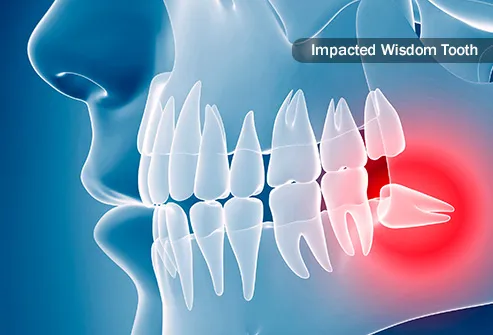
You’re more likely to have issues with these molars than with any other teeth. Each year, some 10 million wisdom teeth are removed, or extracted, in the U.S. A top reason is impaction, when the tooth may not have enough room to come out from the gum like it should.
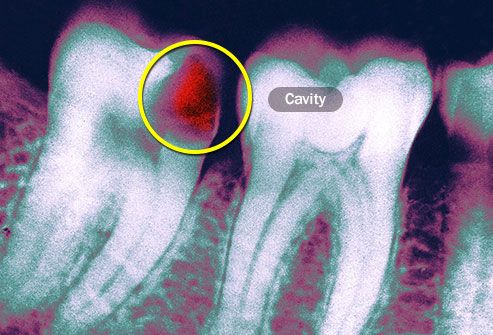
Any wisdom tooth with signs of disease or clear problems should come out. Reasons include:
o Infection or cavities
o Lesions (abnormal looking tissue)
o Damage to nearby teeth
o Bone loss around roots
o Not enough room to brush and floss around the tooth
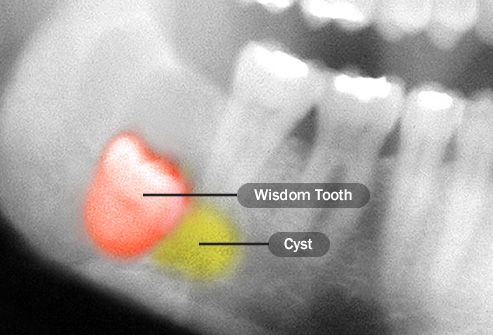
Some dentists recommend taking them out as a precaution because they could cause problems in the future, like:
o Before the tooth comes in, the sack of tissue around it can grow into a cyst, which can lead to bone loss in your jaw.
o If the tooth is on its side under your gum, it can destroy nearby teeth by eating away the roots.
o Bacteria and plaque can build up around a tooth that’s only partly out.
But many researchers and public-health experts don’t think taking out otherwise healthy teeth is a good idea. If your dentist suggests it and you’re not sure if you should, you can always get a second opinion.
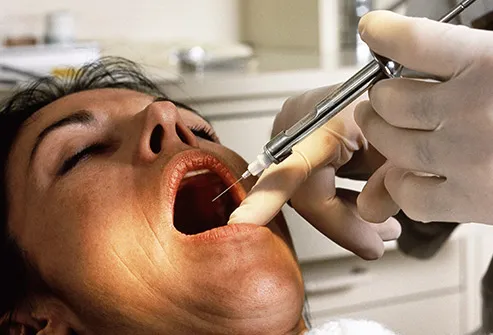
How your dentist takes your tooth out depends on how far it is out of your gum. If it has come in completely, your dentist can do it. They may numb your gums, then use a needle to put a stronger numbing medicine in the area. They’ll loosen the tooth with a tool called an elevator, then pull the tooth with dental forceps, which look like pliers. They’ll clean out the area and pack it with gauze to stop bleeding.

You’ll probably have a little bleeding the first day. You may also feel sore and swollen for a few days. Any bruises could take a bit longer to go away. You shouldn’t brush your teeth for 24 hours. After that, gently gargle with warm saltwater every 2 hours for a week.
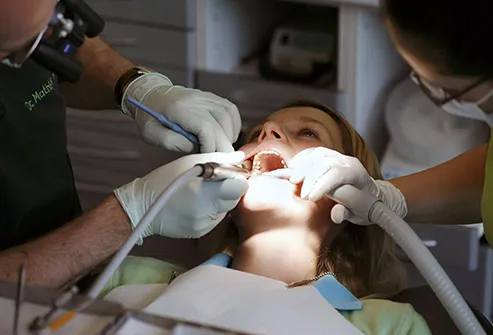
If your tooth is still below the gum line, you’ll need to see an oral surgeon. During the operation, you’ll be given medicine to make you sleepy, so you won’t feel pain or remember much. The surgeon will cut open the gum and remove the tooth bone to get to the root. They may need to cut the tooth into pieces to keep the hole as small as possible.

It’s a good idea to have a ride home because you may be groggy from the medicine. You may be able to manage your pain with over-the-counter drugs, or your surgeon may recommend prescription painkillers, especially if they took out any bone.

You should be able to get back to your normal activities the next day. To speed the healing and ease any pain, you might:
o Hold a cold pack against your jaw to help with soreness and swelling.
o Try not to spit too much so you won’t move the blood clot that’s keeping the area from bleeding.
o Drink lots of water, but stay away from alcohol, hot beverages, or sodas for 24 hours.
o You probably won’t be able to fully open your mouth for about a week. Stick to soft foods that won’t bother the area.
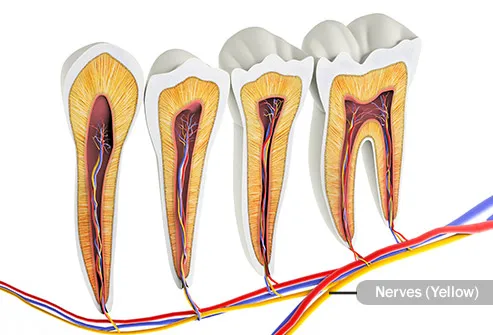
It’s rare, but the surgeon can damage some nerves while taking out the lower teeth. That might leave your lips, tongue, or chin permanently numb. With upper teeth, the surgery can damage your sinuses, your air-breathing cavities under your eyes. If your blood clot goes away too soon and leaves your nerves and bone exposed, that can lead to a painful condition called dry socket. That can happen with both simple and surgical extractions.

Talk to your dentist or surgeon right away if:
o You have a hard time breathing or swallowing.
o Blood won’t stop oozing after a day or two, or pain lasts more than a week.
o Your face or jaw stays swollen for more than a few days.
o You have a fever.
o You feel numbness or notice pus or foul smells.